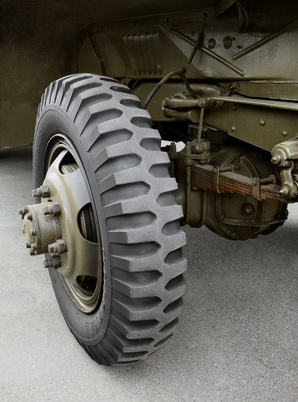
Axle bearings allow car wheel axles to spin. This then allows the car to move supported by the wheel system. When bearings go bad, particularly axle bearings, the symptoms are noticeable. As a result, axle bearing repair should not be delayed; failure can result in serious damage and accidents.
Axle bearings take on a tremendous beating due to pressure and temperature. Those that do not have sufficient grease and lubrication dry up and begin to suffer from friction. Eventually the bearing assembly disintegrates under operational pressure. Signs of impending failure include bearing metal discoloration and fractures on the bearing surface.
The first symptoms of bad axle bearings are usually heard. Depending on the speed of the vehicle, bad axle bearings produce a growling or roaring sound. Handling will typically begin to suffer and get progressively worse.
Regular inspection can reveal signs of bad axle bearings and problems with the transmission differential assembly. When the axle seals begin to leak lubricant, the leak sprays onto the brakes. The bearings themselves will also show signs of burning, pitting or chips as disintegration begin.